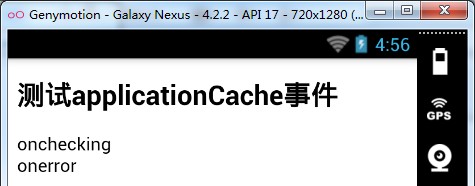android图像处理问题,求大神指导,急!!!
最近在做一个图像放缩的毕业设计,求各位大神指点一下,以下是我遇到的问题:我对图像放缩的了解是这样的,每个图片都可以看做的一个矩阵,矩阵里有很多的像素点,当
一个图片进行放大时,当然是矩阵的长和宽都要扩大,原有图像的像素点显然不够填充放大后的矩阵,
这就要求用的一系列的差值算法,对新矩阵进行像素插值。
于是一个问题产生了,现在手机的像素动不动就是500万以上,如果真的要对这样的图像进行放
大,那么无论插值算法多简单,这个计算量都要吓死人吧,(因为我对这样的图片进行操作后程序直接
卡掉),但是为什么安卓系统自带的相册程序,对拍下的照片就能够做到很快的放缩呢?是不是因为它并
没有使用对像素的插值算法,而是直接对矩阵进行了操作?是不是因为像素足够多,在手机这么小的屏幕上
根本不需要进行像素的插值呢?如果是,那么系统里自带程序对图片矩阵有进行了怎样的变换呢? 如果不是,
请告诉我系统用的是什么方法?
我在网上搜了很多关于Android图像放缩的程序例子,都有这么一句代码:Matrix.postSacle(),
从而实现了对图片的快速放缩,我想知道,这个函数对图片的矩阵究竟做了什么操作?这个函数的内部不需要
进行像素插值吗? --------------------编程问答--------------------
package com.example.code;--------------------编程问答-------------------- 这个你在xml文件里面当成ImageView来用,支持缩放.你的毕业设计这么简单啊?
import android.content.Context;
import android.graphics.Matrix;
import android.graphics.PointF;
import android.graphics.drawable.Drawable;
import android.util.AttributeSet;
import android.view.MotionEvent;
import android.view.ScaleGestureDetector;
import android.view.View;
import android.widget.ImageView;
public class TouchView extends ImageView {
Matrix matrix;
// We can be in one of these 3 states
static final int NONE = 0;
static final int DRAG = 1;
static final int ZOOM = 2;
int mode = NONE;
// Remember some things for zooming
PointF last = new PointF();
PointF start = new PointF();
float minScale = 1f;
float maxScale = 3f;
float[] m;
int viewWidth, viewHeight;
static final int CLICK = 3;
float saveScale = 1f;
protected float origWidth, origHeight;
int oldMeasuredWidth, oldMeasuredHeight;
ScaleGestureDetector mScaleDetector;
Context context;
public TouchView(Context context) {
super(context);
sharedConstructing(context);
}
public TouchView(Context context, AttributeSet attrs) {
super(context, attrs);
sharedConstructing(context);
}
private void sharedConstructing(Context context) {
super.setClickable(true);
this.context = context;
mScaleDetector = new ScaleGestureDetector(context, new ScaleListener());
matrix = new Matrix();
m = new float[9];
setImageMatrix(matrix);
setScaleType(ScaleType.MATRIX);
setOnTouchListener(new OnTouchListener() {
@Override
public boolean onTouch(View v, MotionEvent event) {
mScaleDetector.onTouchEvent(event);
PointF curr = new PointF(event.getX(), event.getY());
switch (event.getAction()) {
case MotionEvent.ACTION_DOWN:
last.set(curr);
start.set(last);
mode = DRAG;
break;
case MotionEvent.ACTION_MOVE:
if (mode == DRAG) {
float deltaX = curr.x - last.x;
float deltaY = curr.y - last.y;
float fixTransX = getFixDragTrans(deltaX, viewWidth, origWidth * saveScale);
float fixTransY = getFixDragTrans(deltaY, viewHeight, origHeight * saveScale);
matrix.postTranslate(fixTransX, fixTransY);
fixTrans();
last.set(curr.x, curr.y);
}
break;
case MotionEvent.ACTION_UP:
mode = NONE;
int xDiff = (int) Math.abs(curr.x - start.x);
int yDiff = (int) Math.abs(curr.y - start.y);
if (xDiff < CLICK && yDiff < CLICK)
performClick();
break;
case MotionEvent.ACTION_POINTER_UP:
mode = NONE;
break;
}
setImageMatrix(matrix);
invalidate();
return true; // indicate event was handled
}
});
}
public void setMaxZoom(float x) {
maxScale = x;
}
private class ScaleListener extends ScaleGestureDetector.SimpleOnScaleGestureListener {
@Override
public boolean onScaleBegin(ScaleGestureDetector detector) {
mode = ZOOM;
return true;
}
@Override
public boolean onScale(ScaleGestureDetector detector) {
float mScaleFactor = detector.getScaleFactor();
float origScale = saveScale;
saveScale *= mScaleFactor;
if (saveScale > maxScale) {
saveScale = maxScale;
mScaleFactor = maxScale / origScale;
} else if (saveScale < minScale) {
saveScale = minScale;
mScaleFactor = minScale / origScale;
}
if (origWidth * saveScale <= viewWidth || origHeight * saveScale <= viewHeight)
matrix.postScale(mScaleFactor, mScaleFactor, viewWidth / 2, viewHeight / 2);
else
matrix.postScale(mScaleFactor, mScaleFactor, detector.getFocusX(), detector.getFocusY());
fixTrans();
return true;
}
}
void fixTrans() {
matrix.getValues(m);
float transX = m[Matrix.MTRANS_X];
float transY = m[Matrix.MTRANS_Y];
float fixTransX = getFixTrans(transX, viewWidth, origWidth * saveScale);
float fixTransY = getFixTrans(transY, viewHeight, origHeight * saveScale);
if (fixTransX != 0 || fixTransY != 0)
matrix.postTranslate(fixTransX, fixTransY);
}
float getFixTrans(float trans, float viewSize, float contentSize) {
float minTrans, maxTrans;
if (contentSize <= viewSize) {
minTrans = 0;
maxTrans = viewSize - contentSize;
} else {
minTrans = viewSize - contentSize;
maxTrans = 0;
}
if (trans < minTrans)
return -trans + minTrans;
if (trans > maxTrans)
return -trans + maxTrans;
return 0;
}
float getFixDragTrans(float delta, float viewSize, float contentSize) {
if (contentSize <= viewSize) {
return 0;
}
return delta;
}
@Override
protected void onMeasure(int widthMeasureSpec, int heightMeasureSpec) {
super.onMeasure(widthMeasureSpec, heightMeasureSpec);
viewWidth = MeasureSpec.getSize(widthMeasureSpec);
viewHeight = MeasureSpec.getSize(heightMeasureSpec);
//
// Rescales image on rotation
//
if (oldMeasuredHeight == viewWidth && oldMeasuredHeight == viewHeight
|| viewWidth == 0 || viewHeight == 0)
return;
oldMeasuredHeight = viewHeight;
oldMeasuredWidth = viewWidth;
if (saveScale == 1) {
//Fit to screen.
float scale;
Drawable drawable = getDrawable();
if (drawable == null || drawable.getIntrinsicWidth() == 0 || drawable.getIntrinsicHeight() == 0)
return;
int bmWidth = drawable.getIntrinsicWidth();
int bmHeight = drawable.getIntrinsicHeight();
// Log.d("bmSize", "bmWidth: " + bmWidth + " bmHeight : " + bmHeight);
float scaleX = (float) viewWidth / (float) bmWidth;
float scaleY = (float) viewHeight / (float) bmHeight;
scale = Math.min(scaleX, scaleY);
matrix.setScale(scale, scale);
// Center the image
float redundantYSpace = (float) viewHeight - (scale * (float) bmHeight);
float redundantXSpace = (float) viewWidth - (scale * (float) bmWidth);
redundantYSpace /= (float) 2;
redundantXSpace /= (float) 2;
matrix.postTranslate(redundantXSpace, redundantYSpace);
origWidth = viewWidth - 2 * redundantXSpace;
origHeight = viewHeight - 2 * redundantYSpace;
setImageMatrix(matrix);
}
fixTrans();
}
}
 --------------------编程问答--------------------
我想说的是,您的代码里面还是有Matrix.postScale()这个函数,而我,想弄清楚他内部是怎么做的,我的毕业设计的任务就是通过操作图片的像素来对图像进行放缩,而不是直接使用Android提供的放缩函数,也就是说这个放缩函数要由自己来完成,对于百万像素级别的图片,我想知道Android是怎么实现快速放缩的,我想知道的其实是一个算法和它的实现方法。不过,还是感谢你的代码
--------------------编程问答--------------------
我想说的是,您的代码里面还是有Matrix.postScale()这个函数,而我,想弄清楚他内部是怎么做的,我的毕业设计的任务就是通过操作图片的像素来对图像进行放缩,而不是直接使用Android提供的放缩函数,也就是说这个放缩函数要由自己来完成,对于百万像素级别的图片,我想知道Android是怎么实现快速放缩的,我想知道的其实是一个算法和它的实现方法。不过,还是感谢你的代码补充:移动开发 , Android




